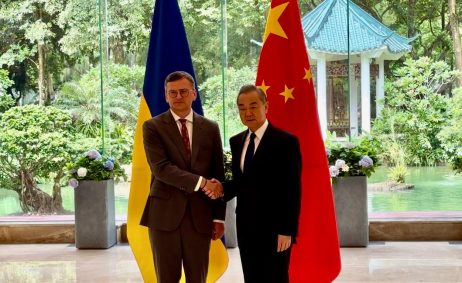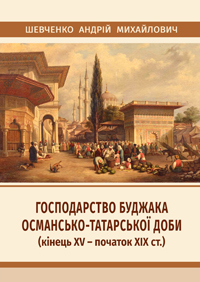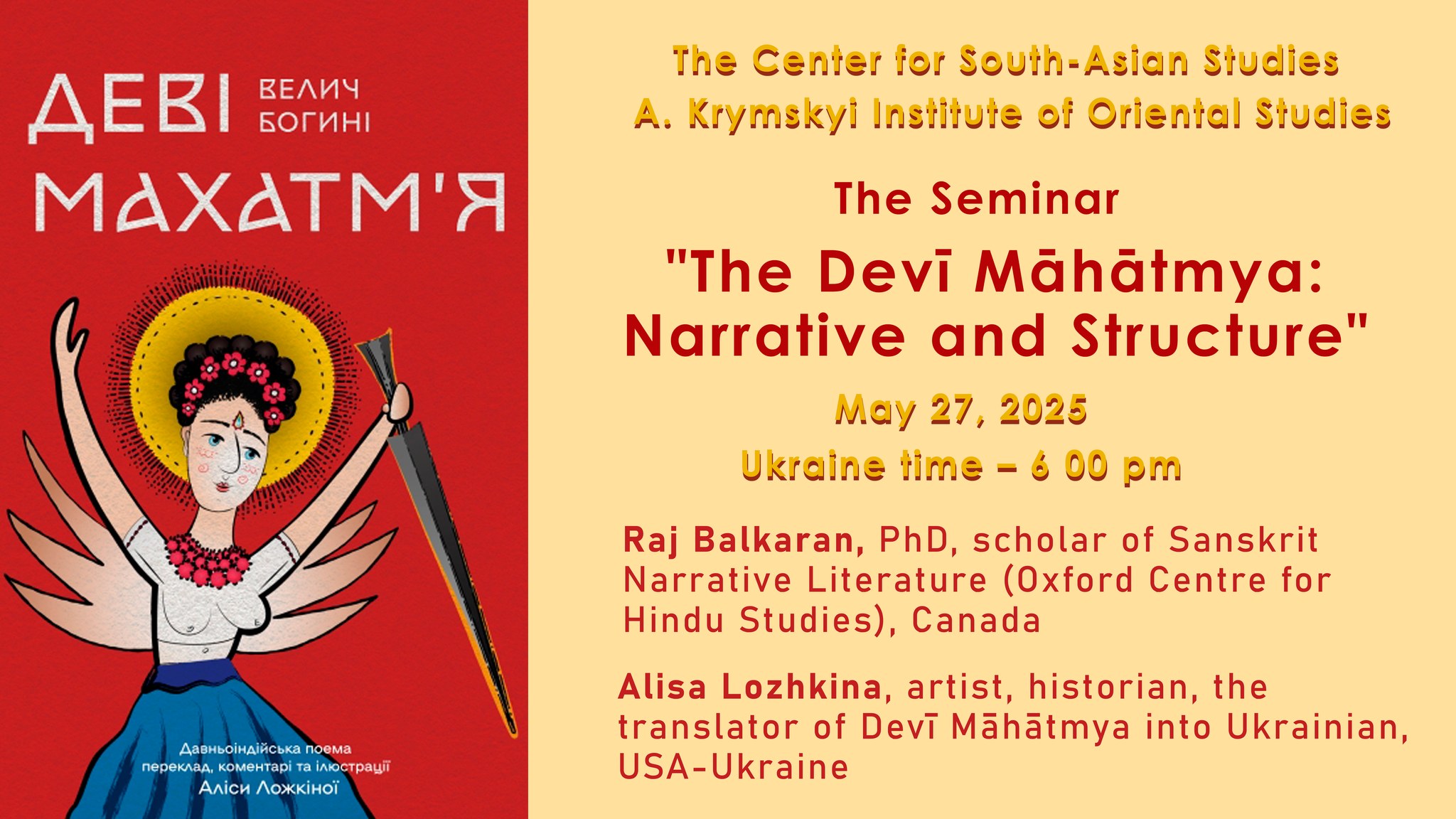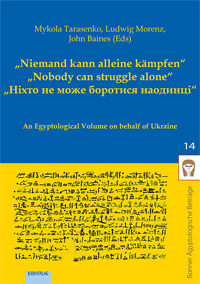Roundtable discussion “China’s Narratives on the Russian Invasion of Ukraine: Entering the Fifth Year”
Dear colleagues,
We invite you to register for the roundtable discussion “China’s Narratives on the Russian Invasion of Ukraine: Entering the Fifth Year,” organized by the Ukrainian Platform for Contemporary China.
Speakers:
Yevheniia Hobova, PhD in Chinese linguistics – Research Fellow, A. Yu. Krymskyi Institute of Oriental Studies, National Academy of Sciences of Ukraine
Oleksandra Stryzhak, PhD in International Relations – Junior Fellow, A. Yu. Krymskyi Institute of Oriental Studies, National Academy of Sciences of Ukraine
Volodymyr Sydorenko – Ukrainian journalist, China correspondent for Ukrinform
David Bandurski – American journalist, Co-Founder and Director of the China Media Project
Moderator:
Kaiser Kuo — Co-Founder of the Sinica Podcast.
Date: February 23, 2026
Time: 3:00 PM (Kyiv time)
Format: Online
Registration link:
XIX International scientific conference “Chinese Civilization: Traditions and Modernity”
Dear colleagues!
We kindly invite you to take part in the XIX International scientific conference “Chinese Civilization: Traditions and Modernity”, which will be held on November 27, 2025.
Chinese_civilization_27.11.2025↵
Наукова конференція «ЛЕКСИКА СХІДНОГО ПОХОДЖЕННЯ В УКРАЇНСЬКІЙ МОВІ: ТЕОРЕТИЧНІ Й ПРИКЛАДНІ АСПЕКТИ ВІДОБРАЖЕННЯ ВЛАСНИХ І ЗАГАЛЬНИХ НАЗВ»
How Ukraine Views Its Relations With China
China’s ever-closer ties with Russia have led to a marked deterioration in its engagement with Ukraine.
By Vita Golod and Dmytro Yefremov
The source: https://thediplomat.com/2025/09/how-ukraine-views-its-relations-with-china 
Ukraine’s ties with China remain anchored in a symbolic legacy: the $1.5 billion loan agreement signed in 2013 between the State Food and Grain Corporation of Ukraine and China’s Export-Import Bank. Just recently, Kyiv reaffirmed its state guarantee on the debt, under renegotiated terms that postpone repayment of both principal and interest. The move, signed by newly appointed Prime Minister Yulia Svyrydenko, was less about economics than about signaling a willingness to preserve what little remains of high-level contact with Beijing.
Yet beyond this gesture, the relationship is stagnant. Since Russia’s full-scale invasion in 2022, Ukraine’s President Volodymyr Zelenskyy and China’s top leader Xi Jinping have spoken only once, and interactions among officials, diplomats, and intellectual circles have largely dried up. Beijing’s disinterest was underscored this month, when Chinese Foreign Minister Wang Yi visited neighboring Poland but pointedly skipped neighboring Ukraine.
Meanwhile, Wang’s visit to Warsaw included high-level talks with Polish Foreign Minister Radosław Sikorski and President Karol Nawrocki. The omission of Ukraine underscored Beijing’s careful need to maintain dialogue with EU states like Poland while avoiding moves that might be read as distancing itself from Moscow.
In Kyiv, Poland’s experience in dealing with China is being studied closely. Both countries have signed a memorandum on the Belt and Road Initiative, yet Warsaw has reaped far greater benefits, securing tangible results well before the EU adopted its broader “de-risking” approach. But Wang’s visit showed that Poland and China remain fundamentally out of sync on strategic questions, with Warsaw emphasizing security and accountability in response to Russia’s war while Beijing avoids naming Moscow and maintains its posture as a neutral mediator.
Despite the political distance, China remains Ukraine’s largest trading partner. In 2024, bilateral trade reached $16.8 billion, heavily tilted in Beijing’s favor. Imports dominated – most notably $1.1 billion in drones and components for Ukraine’s army – while Ukrainian exports totaled just $2.4 billion, largely grain, sunflower oil, and iron ore.
Ironically, Ukraine’s Export Strategy 2030, announced in March 2025, assigns only a marginal role to China. Instead, it prioritizes alignment with the European Union and seeks to reduce the share of raw materials in exports to 59 percent, shifting toward higher value-added goods. While this transformation could, in theory, provide opportunities for Chinese firms to localize production in Ukraine, it has not yet materialized. Instead, European companies have already demonstrated strong readiness to move into this space with financing support – leaving limited room for Chinese investment.
Politically, the picture is far bleaker. China’s ever-closer ties with Russia have led to a marked deterioration in its engagement with Ukraine. Beijing has repeatedly defended this relationship, insisting that “normal cooperation between Chinese and Russian companies complies with WTO rules and market principles; it is not directed against third parties and should not be obstructed.”
Since the outset of Russia’s full-scale invasion, Beijing has drastically scaled back bilateral political dialogue with Ukraine, signaling its perception of Kyiv as lacking autonomous strategic weight. In stark contrast, China’s coordination with Moscow has become more systematic and frequent – developments that Kyiv views as direct security threats. Only in 2024, after Beijing effectively undermined Ukraine’s peace initiatives, did Zelenskyy shift toward a more pragmatic and instrumental approach to dealing with China, coupling it with sharper public criticism of Beijing. This adjustment was also shaped by broader geopolitical disarray following Donald Trump’s return to the U.S. presidency and the onset of a more isolationist U.S. foreign policy.
Despite this political chill, China has remained active in Ukraine’s economic landscape. Chinese Ambassador to Ukraine Ma Shengkun has sought to keep business channels open, promoting access for Ukrainian peas and aquaculture products to the Chinese market. The Ukrainian Chamber of Commerce has become the main venue for hosting Chinese delegations, which increasingly promote electric vehicles and consumer goods while exploring participation in postwar reconstruction. With ceasefire talks gaining momentum, the number of Chinese visits has grown significantly. Yet these have been limited to small- and medium-scale missions, not the large flagship projects once associated with the Belt and Road Initiative.
For Ukraine’s agrarian sector, China remains a priority market. A 2025 AgroPolit survey showed that 40 percent of respondents continue to identify China as critical for agricultural exports. Beijing could capitalize on this enduring interest by expanding access for Ukrainian products, as it has done for ASEAN countries. Yet access to the Chinese market has increasingly become politicized. Protocols for poultry and other goods have been blocked, and every instance of Ukrainian criticism of China has brought direct consequences for trade negotiations. In this sense, Beijing’s commercial leverage is viewed in Kyiv as a tool of geopolitical pressure, not as neutral economic cooperation.
Beyond the economic sphere, Ambassador Ma recently published an article in Interfax-Ukraine promoting China’s Global Governance Initiative, a concept launched by Xi Jinping at the Shanghai Cooperation Organization summit in Tianjin. The initiative, now a Chinese Communist Party priority, emphasizes sovereign equality, international law, multilateralism, and a human-centered approach, and policy effectiveness.
In Ukraine, China’s diplomatic messaging appears insincere, given the realities of the war and Beijing’s stance on it; it is seen less as neutral mediation than as an effort to shield Moscow from defeat or regime change. Abstract commitments and soft power strategies carry little weight as Beijing has failed to engage meaningfully with Ukraine’s public opinion and civil society, beyond elite diplomacy or economic deals.
Public opinion data reinforces this view. A survey conducted by Active Group jointly with Experts Club in August showed that 40.7 percent of Ukrainians have a negative view of China (30 percent mostly negative, 10.7 percent completely negative). Respondents cited China’s ambiguous foreign policy and perceived bias toward Russia as their primary concerns. There is widespread distrust of Beijing’s efforts to position itself as an international peace mediator. This skepticism constrains the Ukrainian leadership’s room for maneuver: any overtures toward China risk being seen domestically as accommodation to a state perceived as unfriendly, if not hostile.
Against this backdrop, Ukraine’s overriding priority remains national survival. Its integration with the European Union is best understood as a means to that end. This trajectory ensures that Kyiv will increasingly adopt EU standards and norms, including a gradual alignment of its approach to China with the broader European consensus. Across Europe, China’s assertive economic behavior has shifted the prevailing logic from cooperation to security-driven caution.
Future cooperation between Ukraine and China will remain possible – and, in some cases, even strategically desirable. Given recent restrictions on Ukrainian agricultural exports to the EU, China could serve as an outlet for surplus agri-exports, relieving pressure on European markets. Yet the challenge for Ukraine will be to develop this trade while avoiding excessive dependence on Beijing, which has repeatedly demonstrated its willingness to wield commerce as a political weapon.
Over the longer term, Ukraine’s Export Strategy 2030 reinforces this trajectory: by anchoring itself in the EU’s collective trade approach toward China, Kyiv hopes to safeguard its economic interests within the broader umbrella of European security and regulatory norms.
Shevchenko A. M. The economy of Budzhak in the Ottoman-Tatar period (late 15th – early 19th centuries)

Shevchenko A. M. The economy of Budzhak in the Ottoman-Tatar period (late 15th – early 19th centuries). – Kamianets-Podilskyi: FOP Pankova A. S., 2024. – 96 p.: ill. (In ukrainian)
ISBN 978-617-7773-71-8
The popular science publication examines the main stages and features of the formation of the economic system of Budjak during its Ottoman-Tatar development (15th – early 19th centuries). The main attention is paid to the legal, economic, and resettlement aspects of the regional policy of the Ottoman state regarding the transformation of the region into a developed center of commodity cattle breeding and agriculture, which became one of the main suppliers of food to Istanbul. The features of commodity and semi-commodity relations in Budjak are determined, the historical, climatic, geopolitical, and ethnosocial factors that ensured the development of traditional industries for the region are traced, and the role of the cities of Budjak in the trade system of the Northern Black Sea region of that time is analyzed. Recommended for researchers, teachers, students, and everyone interested in the history of Budjak in the Islamic era.
Roundtable discussion: “Nuclear Security and the Protection of Ukraine Amid U.S.-China Strategic Rivalry”
We invite you to register for the upcoming roundtable discussion: “Nuclear Security and the Protection of Ukraine Amid U.S.-China Strategic Rivalry”.
Date: August 11, 2025, at 17:00 Kyiv time
Format: Virtual roundtable hosted by the Ukrainian Platform for Contemporary China
This event will focus on analyzing Ukraine’s nuclear security in the context of the ongoing full-scale war and the broader geopolitical competition between the United States and China. Participants will explore major threats, the approaches of key global powers, and the role of international institutions in mitigating risks and strengthening global cooperation.
Speakers include:
- Nicholas Roth (Nuclear Threat Initiative)
- Mariana Budjeryn (Belfer Center, Harvard University)
- Yanliang Pan (James Martin Center for Nonproliferation Studies, Middlebury Institute)
- Lili Voytovych (Hertie School, Germany)
https://ua-china.org/?events=
Seminar “The Devī Māhātmya: Narrative and Structure”

“Niemand kann alleine kämpfen” “Nobody can struggle alone” “Ніхто не може боротися наодинці”: an Egyptological volume on behalf of Ukraine

The war of Russia against Ukraine is also a war against a culture, and for this reason it affects even a small subject like Egyptology. Twenty-four authors from eight countries have come together to contribute to a volume that intends to display our solidarity with Ukraine and to make plain that all of us seek actively to sustain cultures – in our case the understanding of that of the Nile with its more than three millennia of history – through engagement and shared conversations. By means of this joint undertaking we wish to counter brute force with the self-evident necessity of cultural exchange, both in our field of study and beyond.
M. Tarasenko, L. Morenz, J. Baines (ed.) “Niemand kann alleine kämpfen” “Nobody can struggle alone” “Ніхто не може боротися наодинці”: an Egyptological volume on behalf of Ukraine. Bonner Ägyptologische Beiträge. Bd. 14. Berlin. 2024
ISBN-10 386893443X
ISBN-13 978-3868934434
Roundtable “Mineral Deals as a New Diplomatic Tool: Ukraine, China, the EU, and the U.S.”
Dear colleagues,
We are glad to announce our upcoming roundtable “Mineral Deals as a New Diplomatic Tool: Ukraine, China, the EU, and the U.S.” on the Ukrainian Platform for Contemporary China.
Date: May 22
Time: 3:00 PM (Kyiv time) | 8:00 AM (Eastern Time)
Format: Online discussion (in English, registration required)
Speakers:
-
Ivan Us – Chief Consultant, Center for Foreign Policy, National Institute for Strategic Studies (Ukraine)
-
Xu Qinduo – Journalist at CGTN, Senior Fellow at the Pangoal Institution (China)
-
Jim Mullinax – Senior Foreign Service Officer, Diplomatic Fellow (United States)
-
Grzegorz Stec – Head of Brussels Office, Senior Analyst at MERICS (European Union)
Moderator: Kaiser Kuo, Co-founder of the Sinica Podcast
The international round table “China’s Strategy in Global Power Transitions: Challenges in a Turbulent World”
On February 19, 2025, the international round table “China’s Strategy in Global Power Transitions: Challenges in a Turbulent World” was held at the Ukrainian Platform for Contemporary China.
Organizers:
- A. Krymskyi Institute of Oriental Studies, NAS of Ukraine
- Ukrainian Association of Sinologists
- Sinica Podcast
- Publishing House “Helvetica”
Speakers:
- Klaus Larres, Distinguished Professor of History & International Affairs, University of North Carolina (UNC) at Chapel Hill, U.S.
- Qiang Liu, Secretary-General of the Global Forum on Energy Security, Chinese Academy of Social Sciences, P.R.C.
- Una Aleksandra Bērziņa-Čerenkova, Director of the China Studies Centre, Riga Stradins University, Latvia
- Dmytro Yefremov, Board Member, Ukrainian Association of Sinologists, Ukraine
The event was moderated by Kaiser Kuo, host and co-founder of the Sinica Podcast.
Kaiser Kuo noted that as the Russo-Ukrainian war enters its fourth year, the conflict has reshaped the global order, exposing vulnerabilities, shifting alliances, and forcing major powers to reassess their strategies. He highlighted that the Biden administration’s approach to China and its strong support for Ukraine are now history, with President Trump and Defense Secretary Pete Hegseth charting a new and uncertain course. Trump’s recent conversation with Putin signals potential realignments that will have far-reaching consequences for Ukraine, Europe, the Asia-Pacific, and global power dynamics.
Una Aleksandra Bērziņa-Čerenkova outlined two main risks for small states like Latvia due to Trump’s rapprochement with Russia. Increased security threat as the first risk. The Baltic states have relied on collective defense, but confidence in NATO’s security guarantees has been shaken, raising concerns about a potential Russian invasion. And a new “Iron Curtain” as the second. Trump’s undermining of the transatlantic alliance threatens European stability, as long-standing trust in U.S. commitments weakens.
Regarding China-Russia ties, she highlighted two red flags for the Baltics: both Russia and China view NATO expansion eastward as a provocation, and China’s former ambassador to France, Lu Shaye, questioned the sovereignty of post-Soviet states, raising concerns in the region.
Dmytro Yefremov argued that Russia and China are not looking like true allies. If the U.S. normalizes relations with Moscow, Washington will fully shift its focus to countering China. In this scenario, Russia could adopt a more neutral stance or even work to covertly contain China. He also mentioned the recent China-Ukraine diplomatic meeting at the Munich Security Conference, where President Zelenskyy suggested that for the first time, China appeared interested in pressuring Russia to end the war. Beijing may strategically seek to exploit the emerging opportunities presented by the deepening rift between the United States and Ukraine, positioning itself to capitalize on potential shifts in geopolitical dynamics. China might be using this opportunity to restore ties with the EU while ensuring it is not sidelined from future Ukraine-Russia negotiations.
Qiang Liu stated that China does not view the war in Ukraine as a core issue but rather a European conflict. He emphasized that China’s energy security is not at risk, despite buying Russian resources, as Beijing has diversified its energy imports. He also noted that for the first time in years, China’s oil consumption declined in 2024, largely due to the growth of alternative energy sources. Regarding diplomacy, he reaffirmed that China seeks to avoid conflicts and maintain friendly relations with all countries.
Klaus Larres pointed out that Trump’s approach to Ukraine sidelines key stakeholders, particularly European countries, despite their significant financial support for Kyiv. He argued that Europe must be included in peace negotiations, but so far, it has been largely ignored. The scholar also stated that a Sino-Russian split remains unlikely, despite U.S. efforts. China is unlikely to be brought into Ukraine negotiations but will likely play a role in post-war reconstruction.
Kaiser Kuo added that unlike during the Mao era, when border conflicts strained relations, there is no reason for a Sino-Russian split today. China benefits from watching the Western alliance weaken, and the idea of European strategic autonomy now seems more realistic.
Klaus Larres drew a historical parallel between Trump and Nixon, stating that Nixon’s diplomatic approach to China and the Soviet Union was carefully planned over years, while Trump’s actions appear reactionary and chaotic. China has an opportunity to rebuild relations with the EU, but this will likely focus on economic ties rather than a formal alliance.
Una highlighted Chinese narratives that portray European support for Ukraine as a challenge to peacebuilding. She noted that Ursula von der Leyen’s speech at this year’s Munich Conference took a softer stance on China, signaling a potential shift in EU-China relations.
About China’s role in post-war reconstruction:
Dmytro Yefremov stated that China’s entry into peacebuilding is too late, as Ukrainian public opinion remains largely negative toward Beijing, seeing it as Russia’s ally. However, Ukraine’s leadership views China as a potential investor in logistics and energy sectors. Key sectors likely to attract Chinese interest in Ukraine encompass not only logistics and transportation networks, but also agricultural infrastructure and potentially renewable energy, as China seeks to expand its influence in these strategically significant domains.
Qiang Liu emphasized that China could play a role in post-war reconstruction, but likely through European partnerships rather than direct investments in Ukraine. Qiang also noted that two of the six BRI corridors have been destroyed by the war, making it harder for Chinese goods to reach Europe via Russia. China will work on revitalizing the BRI projects in Ukraine.
Klaus Larres siad that Germany will likely prioritize its role in Ukraine’s reconstruction over China, as Berlin poses no political risks for Kyiv, unlike Beijing.





